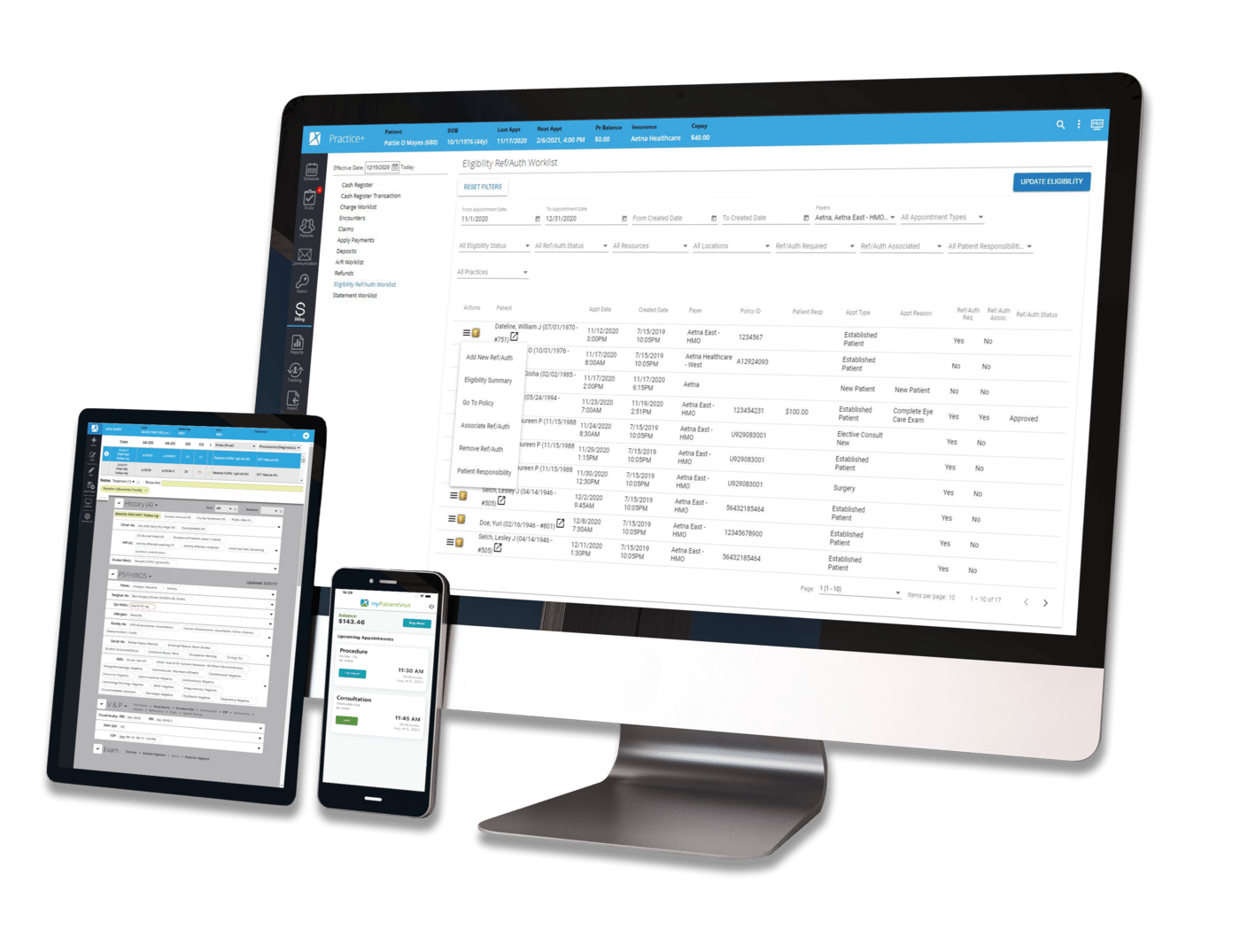Latest Articles
The latest news and information regarding electronic medical records, practice management software, HIPAA, and security from Nextech.

Ophthalmology | Meaningful Use | EHR | Interoperability | MIPS | Regulatory & Compliance | Security & Data Management | Clinical Efficiency | IRIS Registry
By:
Nextech
July 26th, 2022
For almost a decade, Nextech EHR has integrated with the IRIS® Registry. But what is the IRIS Registry and why does it matter?

Ophthalmology | Plastic Surgery | Patient Engagement | Marketing | Dermatology | Healthcare Technology | Features
By:
Nextech
May 24th, 2022
Summer is almost here and the newest features and enhancements are coming to Nextech’s suite of EHR and Practice Management solutions. Whether you’re a current client relaxing by the pool or a practice thinking about hitting the road on a new adventure, these updates are designed to put you in the driver’s seat and take the wheel of your practice.


Plastic Surgery | Patient Engagement | Healthcare Technology
By:
Nextech
April 7th, 2022
Plastic surgery has been experiencing a rather prosperous period in recent years. This surge first began in late 2020, as online meetings and interactions brought on by the pandemic led many people to wish to have procedures that would allow them to be more photogenic for such video interactions. This sudden surge in cosmetics procedures came to be known as the “Zoom Boom” and continued well into 2021.

By:
Nextech
March 15th, 2022
Well, folks… another EDGE user conference is in the books. EDGE 2022 marked our initial return to an in-person conference venue after going virtual due to the COVID-19 pandemic, and all things considered, it was a huge success. This year’s Nextech user conference hosted roughly 900 attendees, staff, and exhibitors from all over the country and in multiple specialties. However, we realize that not everyone was able to come to this year’s EDGE, so let's recap all the awesome things that happened.

By:
Nextech
February 8th, 2022
The Super Bowl is upon us once again, ladies and gentlemen. On Sunday, February 13, 2022, the Los Angeles Rams will face off against the Cincinnati Bengals in Super Bowl LVI at SoFi Stadium in Los Angeles, CA. Many fans are especially excited for the event this year, since this is the first Super Bowl in quite some time that Tom Brady won’t be playing in (and, based on a his recent announcement that he plans to retire, it’s very likely Brady won’t be returning to the Super Bowl). And, of course, many of the Gen Xers out there (myself included) are anticipating an epic halftime show with performances from Eminem, Dr. Dre, Snoop Dogg, and Mary J. Blige.

Ophthalmology | Healthcare Technology
By:
Nextech
January 20th, 2022
Having a specialty-specific EHR is important. However, subspecialty features are sometimes left out of EHR designs. Glaucoma specialists have their own particular needs, and the best EHR should be designed to meet them. For example, it can sometimes be difficult for glaucoma specialists to analyze patient trends over time in order to determine how they are responding to treatment. Also, it can be inefficient when you have to navigate through multiple areas of a patient’s chart to document glaucoma-related data.

Ophthalmology | Healthcare Technology
By:
Nextech
January 18th, 2022
As the leading cause of vision loss and blindness in the United States, glaucoma remains a top concern across the ophthalmology community. Early disease identification, along with proper care management, is essential to limit ocular damage and preserve vision. It is critical for patients who have been or are at risk of getting glaucoma to regularly receive a comprehensive eye exam with dilation.

By:
Nextech
January 11th, 2022
America is currently facing a widespread staffing shortage problem. This is probably not much of a surprise to anyone who has been trying to run a business over the last couple of years. When the COVID-19 outbreak began, a record number of Americans exited the workforce. At that time, the vast majority of people did so because they had no choice, as lockdowns forced many businesses to shut their doors. It was assumed that everyone would return to their jobs once things began to open back up.